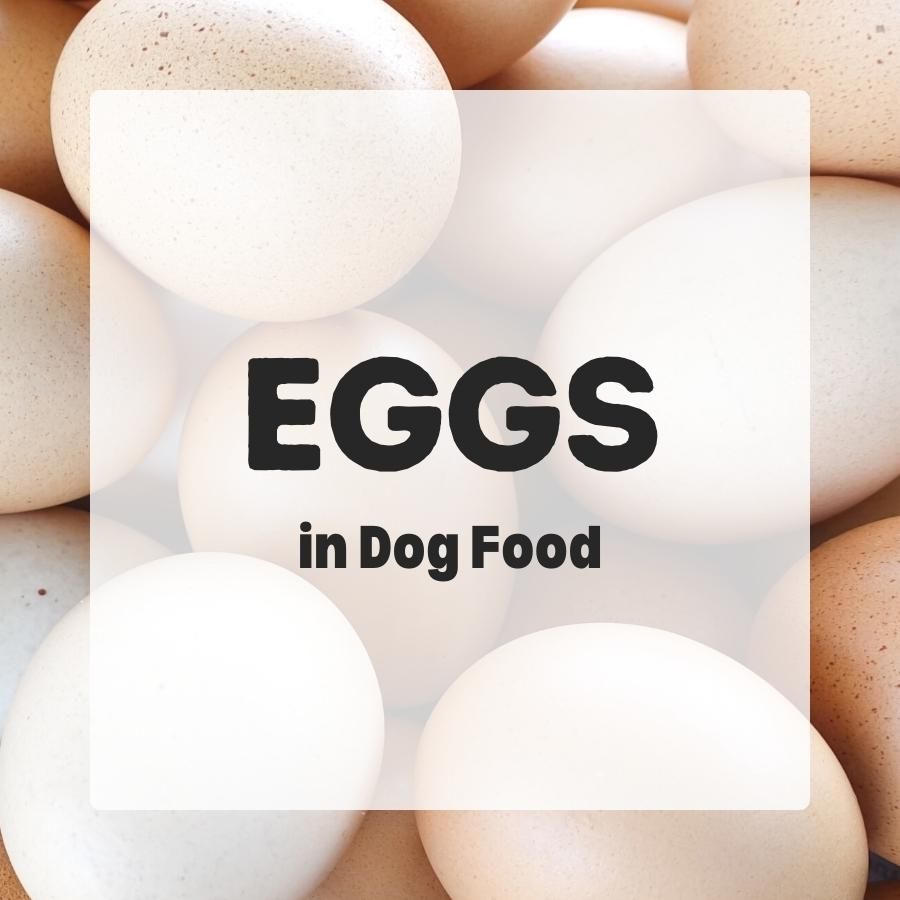Eggs are a common ingredient in dog food and provide a quality source of protein. Eggs in dog food are mostly included as processed egg product or dehydrated egg powders.
Contents
About Eggs in Dog Food
Eggs have a shell, an egg white, and an egg yolk.
Egg refers to the shell eggs of any domesticated poultry species. But if not specified, it is mostly a synonym for chicken eggs.
But in food industry terms, “whole egg” refers to egg yolk plus egg white only. In other words, most commercially processed egg ingredients are shell-free.
Eggs are a high-quality protein source that offers excellent amino acid availability and a range of essential nutrients. They are an available ingredient with a reliable macronutrient composition[4].
They are a source of vitamins A, B12, B6, and D, riboflavin, niacin, biotin, choline, or pantothenic acid as well as minerals like zinc and phosphorus. Egg protein is highly digestible and has a high biological value, making it a good source of protein for dogs.
Eggs are a source of complete protein containing all of the essential amino acids[7].
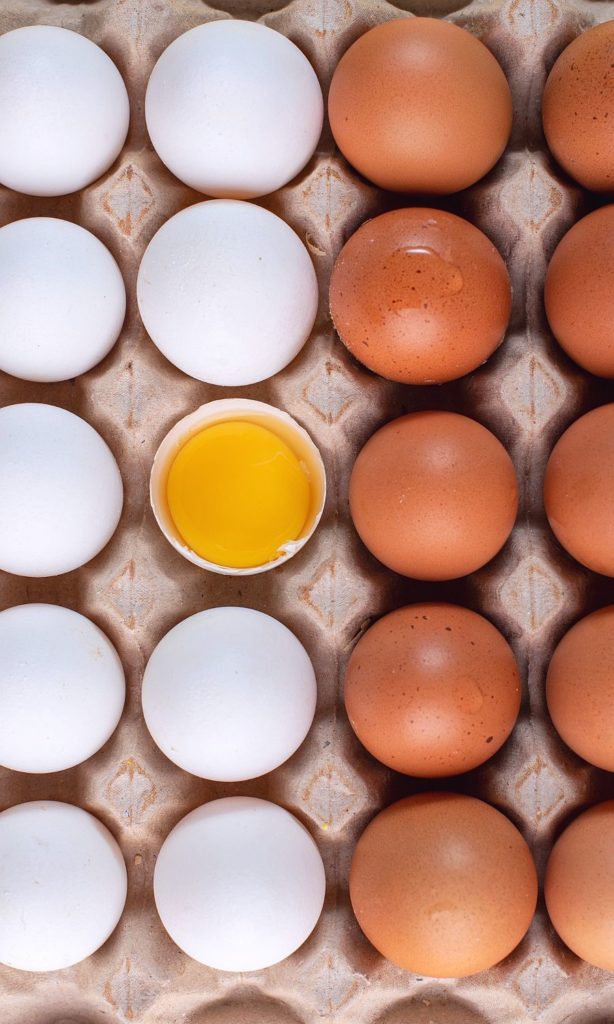
While eggshells can be a source of calcium since they are of nearly pure calcium carbonate. But many dog food manufacturers don’t use eggs as a source of calcium and opt to use shell-free egg products.
Overall, eggs are a nutritious ingredient.
However, it is important to note that raw eggs can be a source of pathogenic bacteria such as Salmonella enteritidis, which is a concern for both dogs and humans.
In humans, egg whites are a common allergen and some dogs may be allergic to eggs. Fortunately, food allergies in dogs are less common than many people believe[3,4].
Whole Eggs, White & Yolk
Egg ingredients in dog food are not always fresh. They can be used frozen, liquid or dried and still be called eggs, egg whites or yolks[8].
But whole dried egg, spray-dried egg, or whole egg powder are more stable and nutrient-dense than liquid or frozen raw eggs.
Whole eggs consisting of both the white and yolk provide high-quality protein, but also fats, minerals, and micronutrients.
The amino acid profile of egg whites differs just slightly from that of egg yolk[7]. But both parts of the egg have a different nutrient composition.
An egg yolk is the yellow part of an egg. It is not only a source of protein but provides some flavor and contains all of the fat in the egg.
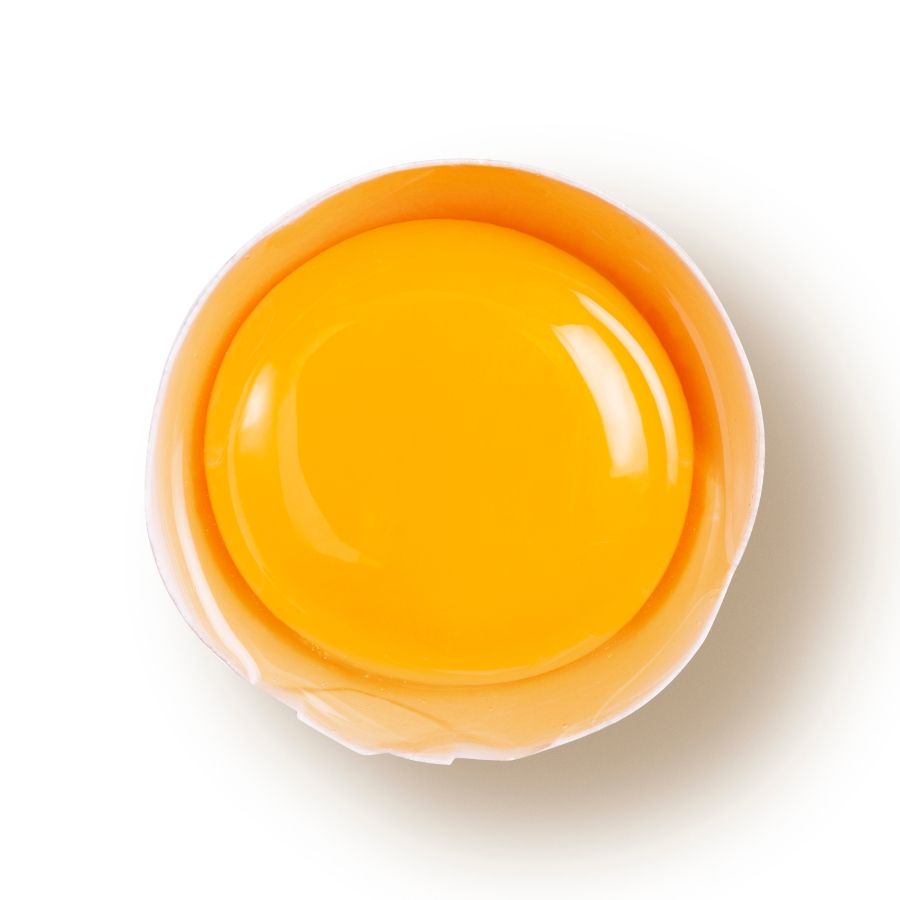
Egg yolks provide a range of essential nutrients such as biotin and vitamins A, B12, and D. In addition, egg yolks contain choline, which is important for brain and liver function.
One concern for some dog owners is their high cholesterol content, although cholesterol is not necessarily harmful to dogs.
Egg whites are the clear protein-rich part of an egg.
Egg whites, also known as albumen, can be used in dog food and treats as a binder. They are rich in protein and low in fat and calories.
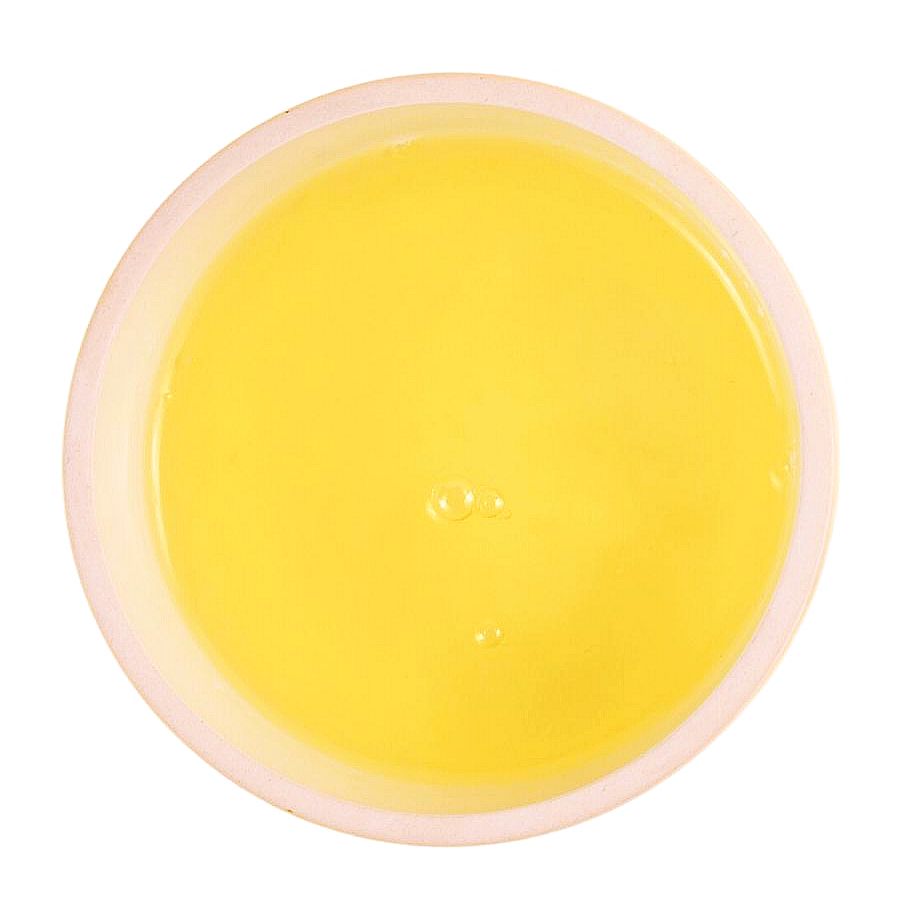
Some of you may have heard that raw egg whites contain a protein called avidin, which can bind to biotin and make it unavailable for digestion which could cause biotin deficiency in the long run.
But first of all, egg yolks contain enough biotin to make up for it. And cooking denatures avidin in processed dog foods anyway, making it unable to bind to biotin.
Egg Product
Egg product can refer to various forms of eggs that have been processed to provide food manufacturers with hygienic, safe, and ready-to-use eggs.
Manufacturers obtain egg product from egg processing plants or hatchery operations[1].
Dried egg powders made from shell-free eggs are a common ingredient in dog food since they are easier to store and more convenient to use.
But any dehydrated, liquid or frozen form of pasteurized shell-free eggs, egg yolks, and egg whites that was obtained by breaking and processing shell eggs qualifies as egg product[6].
Egg Shell Meal
In the egg processing industry, eggshells are produced in large quantities as a by-product. Egg shells are a major agricultural and industrial waste product[11].
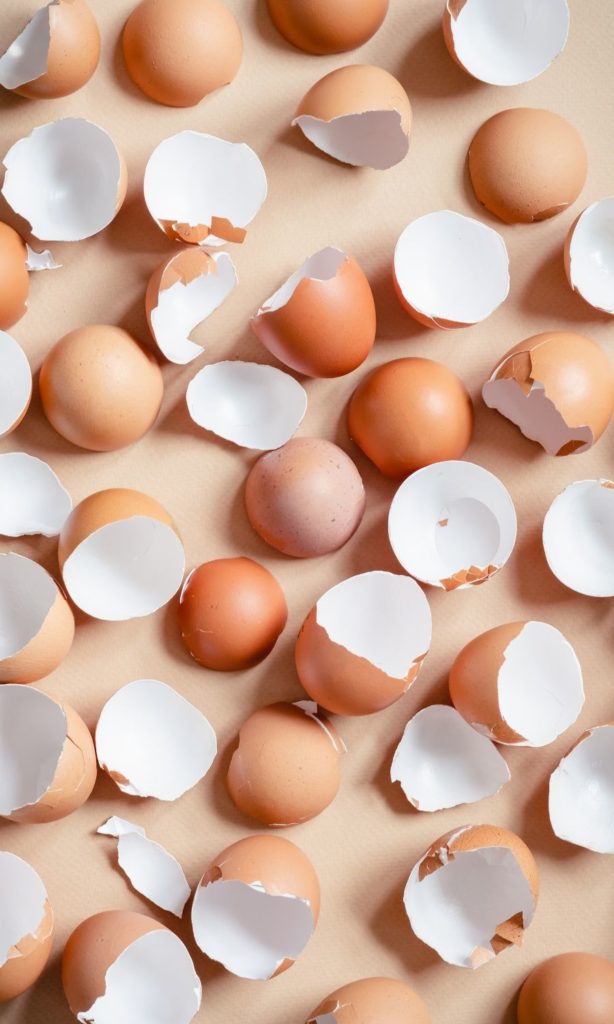
Egg shell meal in dog food is a way to recycle these egg leftovers.
This ingredient is defined as the dried residue from egg breaking plants, it is actually a mixture of eggshells, shell membrane and egg content.
Egg shells are mainly calcium carbonate, but they are rarely used as a calcium supplement in pet food. But egg shell meal has a varying composition and can provide minerals and protein.
Egg Shell Membrane
Innovation in the egg-cracking industry made it possible to separate the eggshell from the eggshell membrane.
The egg membrane is the thin layer that lines the inside of the shell. It is made from a fibrous protein matrix rich in collagen[10].
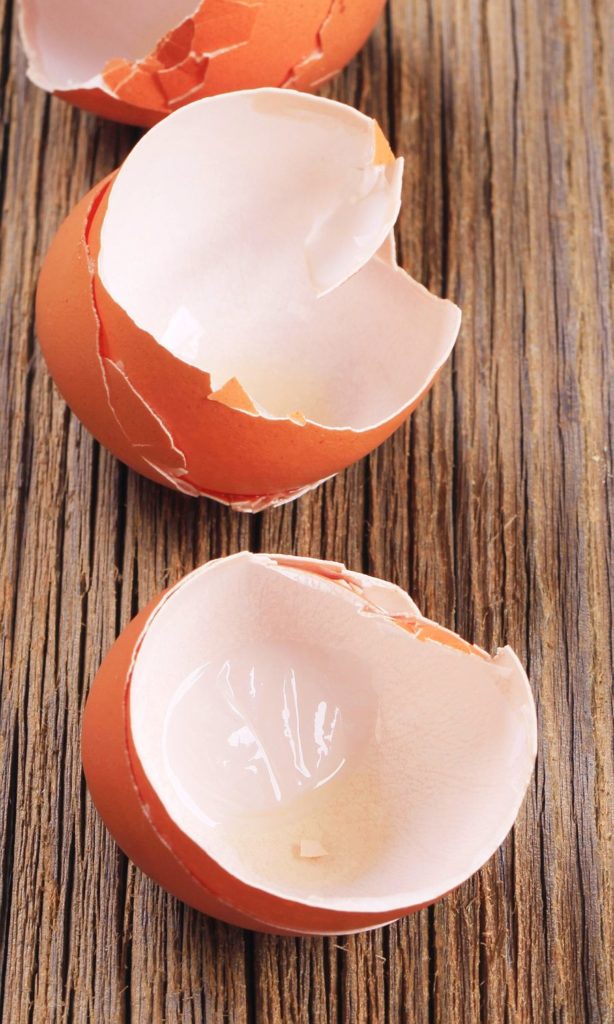
But egg shell membranes also contain lots of other bioactive compounds such as hyaluronic acid, chondroitin sulfate, and glucosamine[5].
Egg shell membrane in dog food is included as a novel dietary supplement. It might have a chondroprotective effect and reduce joint pain in dogs with joint problems[5].
Further Reading
[1] AAFCO Official Publication. Chapter 6. Free Access.
[2] Verlinden et al. Food allergy in dogs and cats: A review. Critical Reviews in Food Science and Nutrition. 2006. https://doi.org/10.1080/10408390591001117
[3] Mueller et al. Critically appraised topic on adverse food reactions of companion animals (2): common food allergen sources in dogs and cats. BMC Vet Res. 2016. https://doi.org/10.1186/s12917-016-0633-8
[4] Jones et al. Physical quality and composition of retail shell eggs. Poultry Science. 2010. https://doi.org/10.3382/ps.2009-00315
[5] Ruff et al. Effectiveness of NEM® brand eggshell membrane in the treatment of suboptimal joint function in dogs: a multicenter, randomized, double-blind, placebo-controlled study. Vet Med Auckl. 2016. https://doi.org/10.2147%2FVMRR.S101842
[6] Lechevalier et al. Processed Egg Products. 2011. https://doi.org/10.1533/9780857093912.4.538
[7] Donadelli et al. The amino acid composition and protein quality of various egg, poultry meal by-products, and vegetable proteins used in the production of dog and cat diets. Poultry Science. 2019. https://doi.org/10.3382/ps/pey462
[8] Code of Federal Regulations.
9 CFR §590.5 Egg product.
21 CFR § 501.4 Animal food; designation of ingredients.
[9] Brun et al. Chicken eggshell as suitable calcium source at home. Int J Food Sci Nutr.
[10] Wong et al. Collagen in the egg shell membranes of the hen. Developmental Biology. 1984. https://doi.org/10.1016/0012-1606(84)90033-2
[11] Therdthai et al. Modified eggshell powder using thermal treatment and its application in Ca-fortified dog biscuits. Heliyon. 2023. https://doi.org/10.1016/j.heliyon.2023.e13093
